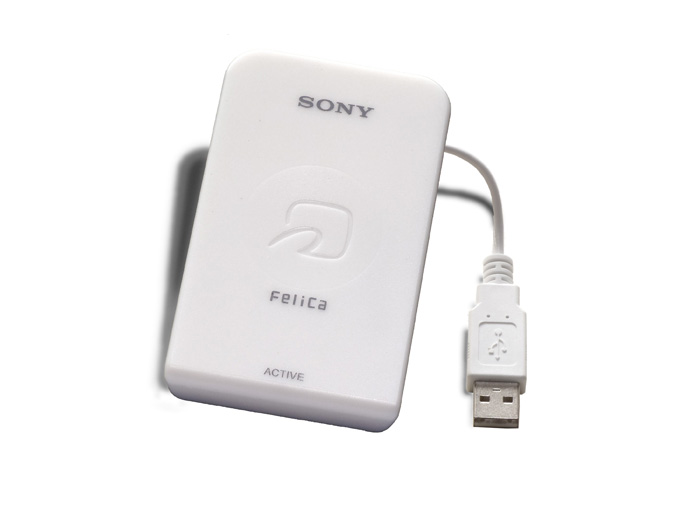Personal RFID terminals go big in Japan
Sony technology helping shoppers stay safe online

As RFID technology continues to make inroads into everyday life in transportation passes, electronic money and ID cards, the barometer of consumer electronics that is Japan gives us a hint as to what might be ahead.
According to Sony Japan, the company has just sold its five millionth USB RFID dongle for home computers. The 'PaSoRi' devices are clearly taking off in Japan, so something similar is sure to reach the West before long, but what exactly are they for?
Safer shopping
As the useful English-language site on the FeliCa RFID technology involved explains, the USB gadgets can be used in multiple ways. The most common involves swiping an IC-chipped phone or credit card to pay for purchases made online. The advantage lies in encryption applied to the card number before it is transmitted - a valuable safety net in these days of endless data breaches.
Other uses for the technology - terminals are already built into all Japanese Sony Vaios, by the way - include encrypting files on the PC, authenticating users for access to secure parts of a network and even acting as a screensaver lock.
The most prosaic FeliCa application is, however, considerably more useful than any of those. Instead of using a ticket machine in a train station, travellers with IC passes can add cash to or renew their validity from the comfort of their desk using the PaSoRi, something we can expect to see in the West soon.
Are you a pro? Subscribe to our newsletter
Sign up to the TechRadar Pro newsletter to get all the top news, opinion, features and guidance your business needs to succeed!
J Mark Lytle was an International Editor for TechRadar, based out of Tokyo, who now works as a Script Editor, Consultant at NHK, the Japan Broadcasting Corporation. Writer, multi-platform journalist, all-round editorial and PR consultant with many years' experience as a professional writer, their bylines include CNN, Snap Media and IDG.